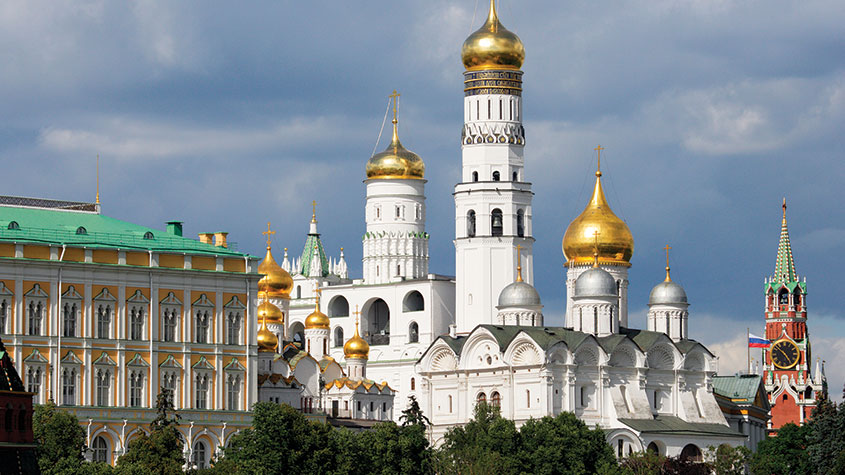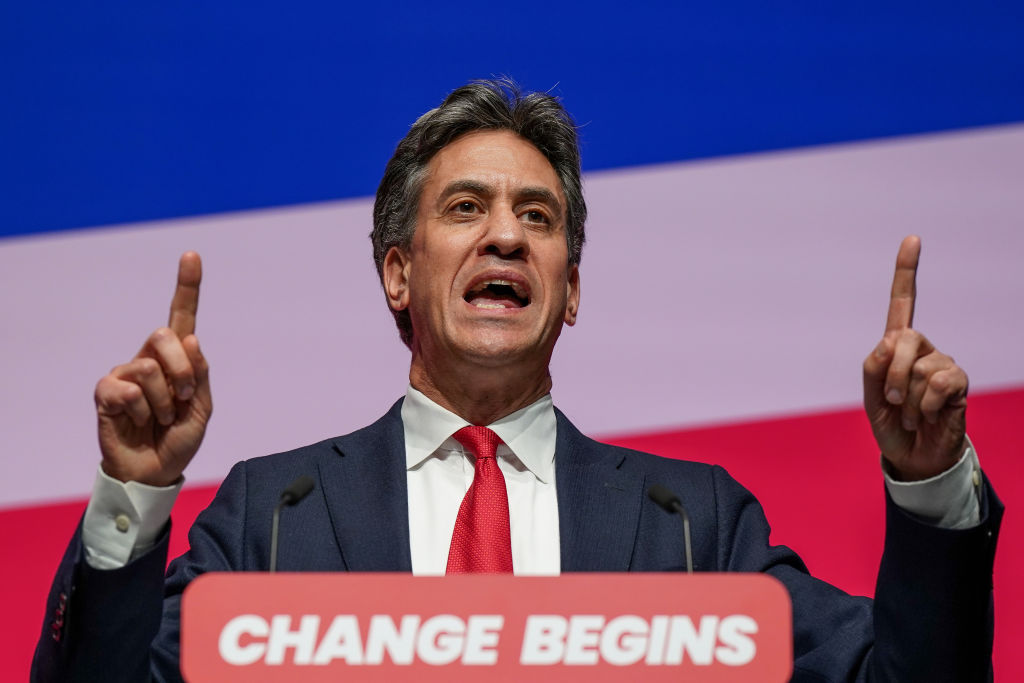The fallout from Europe’s energy crisis
The soaring price of gas could see the EU impose a cap on the price of electricity generated by nuclear and renewables, while signs of strain appear in the energy derivatives market, and investors are dumping European stocks.

Get the latest financial news, insights and expert analysis from our award-winning MoneyWeek team, to help you understand what really matters when it comes to your finances.
You are now subscribed
Your newsletter sign-up was successful
Want to add more newsletters?

Twice daily
MoneyWeek
Get the latest financial news, insights and expert analysis from our award-winning MoneyWeek team, to help you understand what really matters when it comes to your finances.

Four times a week
Look After My Bills
Sign up to our free money-saving newsletter, filled with the latest news and expert advice to help you find the best tips and deals for managing your bills. Start saving today!
Moscow’s “indefinite shutdown of Nord Stream 1”, Russia’s main gas connection to Germany, “was supposed to be the Kremlin’s big weapon that would send the wholesale price to new stratospheric levels”, say Ben Hall, Valentina Romei and Sam Fleming in the Financial Times. So far it hasn’t worked. Although they remain historically elevated, European wholesale gas and German electricity prices have instead fallen by 40% and 34% respectively since spiking late last month.
Russia’s share of EU gas imports has fallen from 40% to just 9% since the war began. With German storage tanks 88% full, “confidence is growing in…capitals that Europe can get through the winter without severe economic and social dislocation or energy rationing”.
The energy crisis is forcing a reform of Europe’s electricity market
On Wednesday European Commission president Ursula von der Leyen outlined sweeping plans to reform the continent’s electricity market. Gas is the marginal fuel for European power generation and thus drives electricity prices. This means non-gas electricity producers such as nuclear power and renewables can earn huge revenues while their production costs are now far below market prices. The plan is to cap these revenues, while she is also pushing for a windfall tax of 33% on the profits generated by energy companies.
MoneyWeek
Subscribe to MoneyWeek today and get your first six magazine issues absolutely FREE

Sign up to Money Morning
Don't miss the latest investment and personal finances news, market analysis, plus money-saving tips with our free twice-daily newsletter
Don't miss the latest investment and personal finances news, market analysis, plus money-saving tips with our free twice-daily newsletter
No wonder that governments want to raise revenue: “Added together, Europe and the United Kingdom have so far promised to spend more than €500bn ($500bn) to subsidise bills” in response to soaring prices, say Lauren Kent and Anna Cooban for CNN. The scale of the crisis means that proposals like a windfall tax that were considered “crazy in June” are now mainstream, Václav Bartuška, the Czech special envoy for energy security, told The Wall Street Journal.
Energy derivatives and European stocks are feeling the strain too
There are also signs of strain in the energy-derivatives market, says Gillian Tett in the Financial Times. European utility firms are facing crippling margin calls on contracts they had taken out to hedge against price falls. Soaring prices have created “massive paper losses” on these contracts, forcing some governments to step in. Up to €1.5trn may be needed as collateral, with the Finnish energy minister talking of “the energy sector’s version of [the] Lehman Brothers” meltdown. “Designing an electricity market is hard. The juice cannot yet be stored at scale, and has to be delivered at the exact moment it is needed,” says The Economist. European governments are trying to find a way to protect consumers while preserving the incentive for electricity producers to generate – and for consumers to lower the thermostat.
The energy furore is rattling investors further. European stocks have been slipping since mid-August amid fears of recession; last week the European Central Bank raised interest rates by three-quarters of a percentage point. “Bank of America’s monthly fund-manager survey showed global investors are the most underweight on European equities ever,” says Cormac Mullen on Bloomberg. The Euro Stoxx 600’s July lows may be “tested again soon”.
Get the latest financial news, insights and expert analysis from our award-winning MoneyWeek team, to help you understand what really matters when it comes to your finances.
Alex is an investment writer who has been contributing to MoneyWeek since 2015. He has been the magazine’s markets editor since 2019.
Alex has a passion for demystifying the often arcane world of finance for a general readership. While financial media tends to focus compulsively on the latest trend, the best opportunities can lie forgotten elsewhere.
He is especially interested in European equities – where his fluent French helps him to cover the continent’s largest bourse – and emerging markets, where his experience living in Beijing, and conversational Chinese, prove useful.
Hailing from Leeds, he studied Philosophy, Politics and Economics at the University of Oxford. He also holds a Master of Public Health from the University of Manchester.
-
 Early signs of the AI apocalypse?
Early signs of the AI apocalypse?Uncertainty is rife as investors question what the impact of AI will be.
-
 Reach for the stars to boost Britain's space industry
Reach for the stars to boost Britain's space industryopinion We can’t afford to neglect Britain's space industry. Unfortunately, the government is taking completely the wrong approach, says Matthew Lynn
-
 No peace dividend in Trump's Ukraine plan
No peace dividend in Trump's Ukraine planOpinion An end to fighting in Ukraine will hurt defence shares in the short term, but the boom is likely to continue given US isolationism, says Matthew Lynn
-
 Europe’s new single stock market is no panacea
Europe’s new single stock market is no panaceaOpinion It is hard to see how a single European stock exchange will fix anything. Friedrich Merz is trying his hand at a failed strategy, says Matthew Lynn
-
 EPC rating standards for private landlords set for major overhaul amid ‘biggest ever’ energy efficiency push
EPC rating standards for private landlords set for major overhaul amid ‘biggest ever’ energy efficiency pushNews The government wants landlords to achieve an EPC rating of at least C in private rented homes. The policy revives plans previously put forward by the Conservatives.
-
 Halifax: House price slump continues as prices slide for the sixth consecutive month
Halifax: House price slump continues as prices slide for the sixth consecutive monthUK house prices fell again in September as buyers returned, but the slowdown was not as fast as anticipated, latest Halifax data shows. Where are house prices falling the most?
-
 Rents hit a record high - but is the opportunity for buy-to-let investors still strong?
Rents hit a record high - but is the opportunity for buy-to-let investors still strong?UK rent prices have hit a record high with the average hitting over £1,200 a month says Rightmove. Are there still opportunities in buy-to-let?
-
 Pension savers turn to gold investments
Pension savers turn to gold investmentsInvestors are racing to buy gold to protect their pensions from a stock market correction and high inflation, experts say
-
 Where to find the best returns from student accommodation
Where to find the best returns from student accommodationStudent accommodation can be a lucrative investment if you know where to look.
-
 The world’s best bargain stocks
The world’s best bargain stocksSearching for bargain stocks with Alec Cutler of the Orbis Global Balanced Fund, who tells Andrew Van Sickle which sectors are being overlooked.